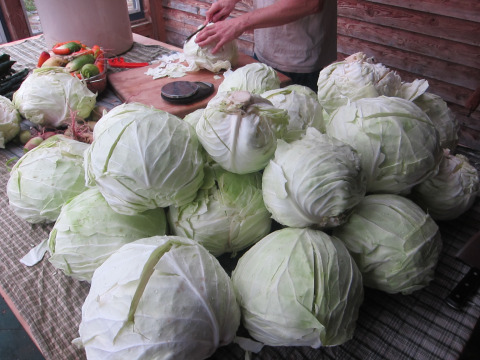We Know All Too Well

Never ending
I’ll be at Bear Pond Books tonight, if’n any of you’d like to come out.
Our friend Erik comes every Monday to spend time with Rye. They go into the woods or maybe go fishing or just work on some project or another either indoors or out, depending on the weather. We mostly compensate Erik for his time with food; this year, he got beef, chickens, and lamb, and pretty much every Monday he stays for lunch and the five of us eat and chat around the big table we got after my grandmother died, and it just occurs to me that she’d spin in her grave if she knew the half of what’s been consumed at that table.
Anyway. We have an on-going conversation with Erik that’s about a lot of things, but as I interpret it is mostly about what one is obligated to do, which is to say, it’s about how one should lead one’s life. Ah. Nothing like a little light conversation to get the digestive juices flowing.
By his own definition, Erik is an activist. He spends a lot of his time preparing for and participating in direct action campaigns targeted at corporations and political entities engaging in environmental destruction in their quest for profit and power. He is not afraid to be arrested for his beliefs, and I respect this, perhaps because I am afraid to be arrested for my beliefs. Wait. Maybe that’s not quite right; maybe I just haven’t yet had the strongest of my beliefs threatened by law. But be that as it may, Erik is out there, proactively worked to destabilize many of the forces I decry in this space. Or maybe I don’t decry these forces specifically; I think my tendency is to speak more of the cultural sense of disempowerment and entrapment that comes of these forces holding sway over our lives. But what’s the difference, really? Ah, it just now occurs to me: I speak of symptoms; Erik acts against the disease. So maybe there’s a pretty damn big difference, after all.
Erik believes that consumer choice is not enough. I know this because he’s told me as much. I suspect – though he hasn’t told me directly – that while he respects and understands our life choices, he also believes we’re not really part of the solution, because these forces are so much bigger than any one family, no matter how much of their food that family grows. No matter how many times they layer patches over the patches on their work pants. And all the hundreds of small choices we make on a daily basis to not participate in the captive, extractive economy.
Truth is, Erik’s probably right. I don’t want him to be right, because I’m real comfortable living my life the way I live it, fooling myself into believing I’m not part of the problem. No, wait: I know I’m part of the problem. But I also like to believe I’m part of the solution, and while these things might not be mutually exclusive, I suspect I inflate my role in the latter, while diminishing my role in the former. Which is to say, I’m fooling myself.
I bet most of us do that. Or maybe we’re unable to fool ourselves but also too scared to do what Erik does, and how can that result in anything but despair? Sometimes I wonder if this is not the origin of so many of the sad statistics regarding health and contentment in this culture. On a conscious, intellectual level, we don’t know we’re fooling ourselves. But of course we operate on other levels, too, and maybe on those levels, we know it all too well.
I think you should all listen to this interview. This might be the closest thing we have right now to a mainstream celebrity calling it like it is, and no matter what one thinks of mainstream celebrity and the culture that’s grown up around it (not terribly much, in my case), let’s give credit where credit is due. And let’s recognized that what Russell’s calling for is really no different than what Erik is doing: That we take a moment to slow down, look around, and realize how fucked up things are. And stop fooling ourselves.

Ben Hewitt's Blog
- Ben Hewitt's profile
- 37 followers



